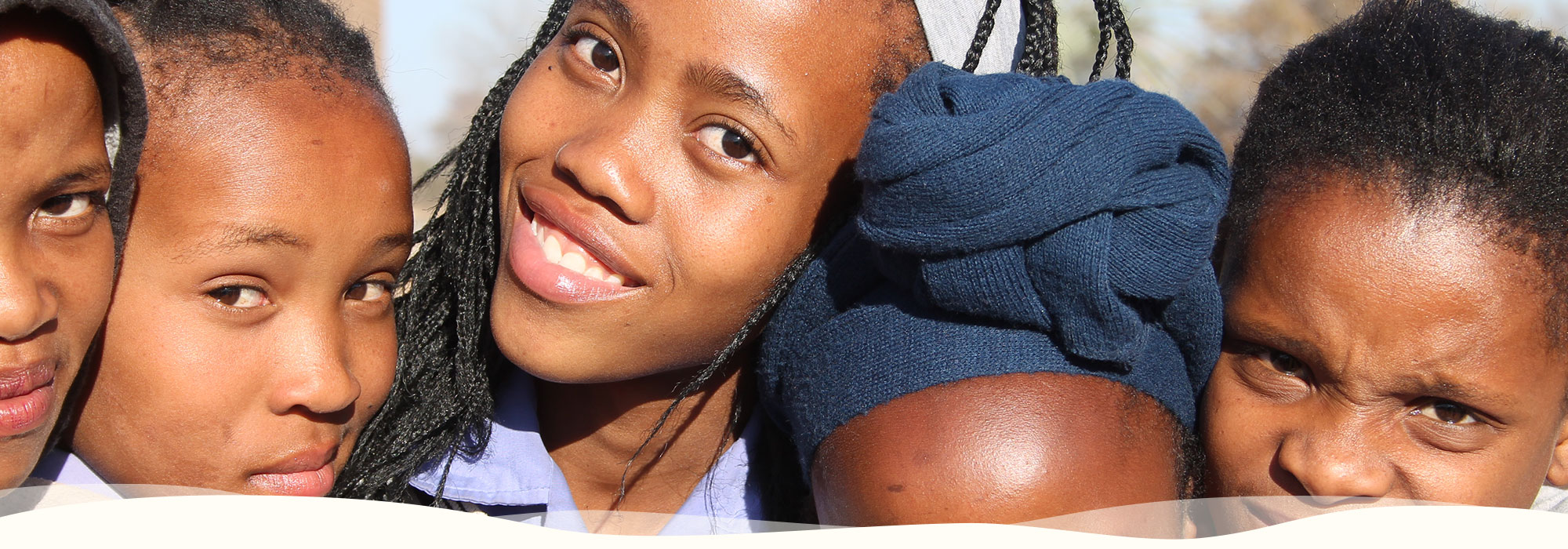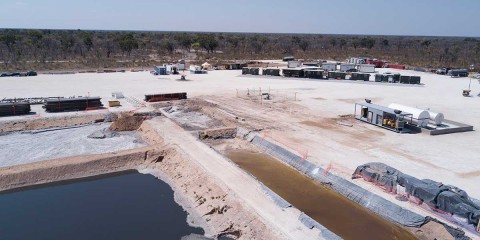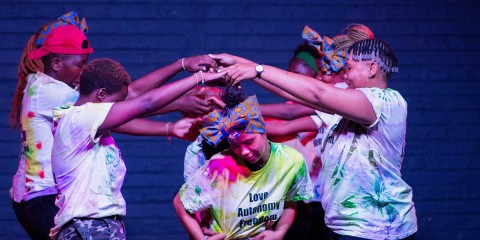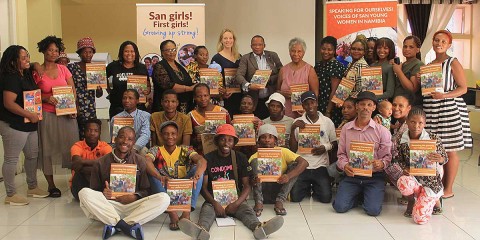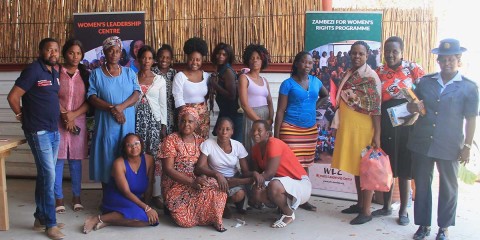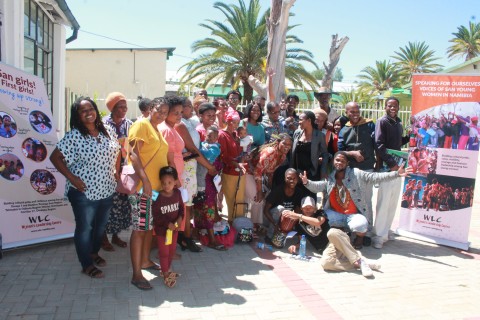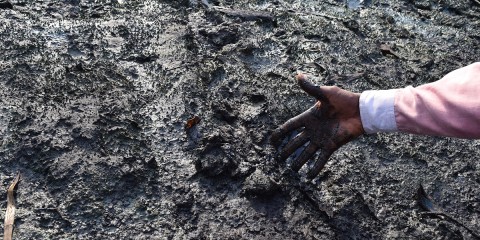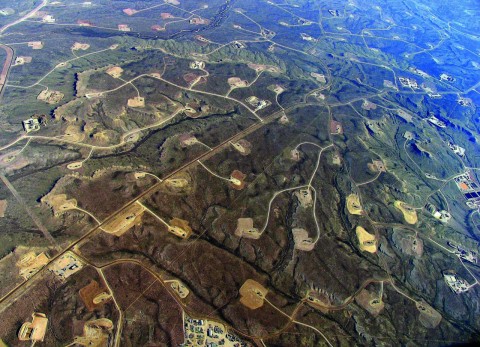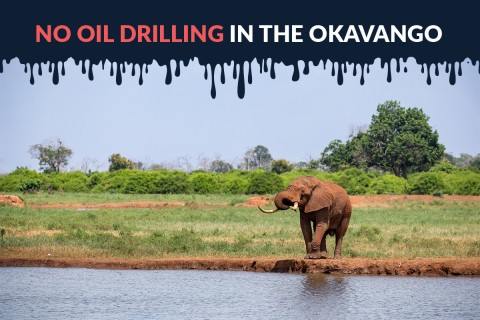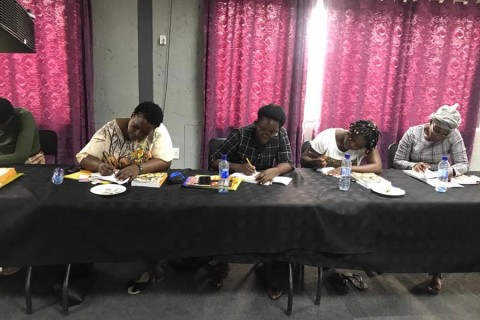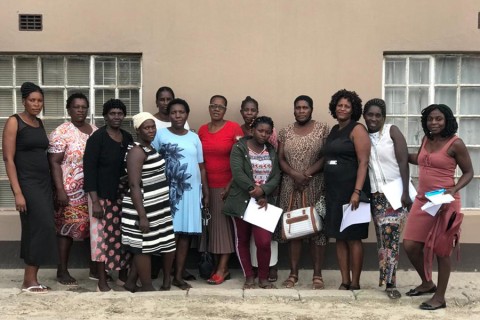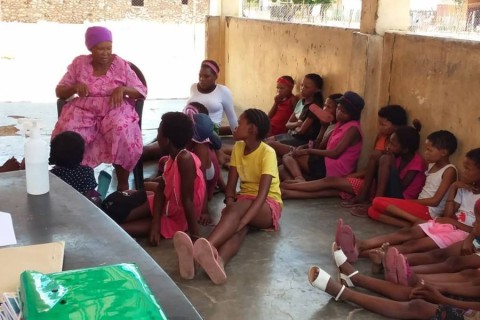Scientists around the world have shown that drilling for oil and gas comes with a number of very serious dangers to economies, people, livestock, wildlife, rivers, ecosystems and our climate.
The Namibian Lesbian Festival 2022 brought together 35 young lesbians from six regions of Namibia for a week of sisterhood and solidarity, which included healing sessions, discussions on feminist movement building, and creating music, dance and poetry performances on the themes of Love, Autonomy and Freedom for the public event held at Brewers Market Theatre in Windhoek on 18 November, with an enthusiastic audience of 150 people supporting the show.
Eveliina Anteroinen of the Embassy of Finland launched the booklet: "Becoming the parents our children need! A guide for San parents and caregivers" in the presence of Hon. Royal J.K. /Ui/o/oo, Deputy Minister for Marginalised Communities in the Presidency and Deputy Minister for the Ministry of Gender Equality, Poverty Eradication and Social Welfare, as well as members of the public and San community leaders from six communities across Namibia.
The WLC hosted an advocacy meeting in Katima Mulilo on 16 September 2022 on the prevention of harmful cultural practices in Zambezi Region with community leaders from 8 villages and representatives from the ministries of Gender, Safety and Security, Information and Home Affairs, as well as Project Hope and the media.
A documentary by Rosa Luxemburg Stiftung South Africa. With voices from Women's Leadership Centre's Liz Frank & Nadia April as well as those of Max Muyemburuko (Kavango East and West Regional Conservancy & Community Forest Association), activist Veruschka Dumeni, Rinaani Musutua (Economic & Social Justice Trust), and geologists Jan Arkert and Matt Totten Jr.
On Thursday 7th April 2022, the Women’s Leadership Centre in partnership with the Embassy of Finland launched the new WLC project titled Reducing Family Violence in San Communities, which is being implemented by Community Leaders in six San communities in Namibia: Omega 1, Mu’ciku, Ndama, Tsintsabis, Drimiopsis and Skoonheid. During the week the Community Leaders received training on forms and types of family violence; the impact of family violence on people’s the lives; the causes, attitudes, behaviours and cultural norms that are driving family violence in San communities; conflict resolution skills; and strengthening cultural pride as a protective factor against violence.
Despite failing to conduct bona fide public consultations, the Canadian company ReconAfrica received environmental clearance permits to drill 3 exploration wells and conduct seismic tests in the Kavango regions. Oil and gas production holds great dangers to Namibia and runs contrary to worldwide attempts to move away from fossil fuels like coal, oil and gas, which are major drivers of global warming.
Namibia is a signatory to the Paris Accord on Climate Change and has committed to reduce greenhouse gas emissions by 92% by 2030. This stands in complete contradiction with giving permission to ReconAfrica’s oil and gas exploration. Experts predict that as the world shifts towards alternative renewable energy sources, investments made now into fossil fuel production will soon become “stranded assets”, where promised oil and gas revenues never materialise and bankrupt oil and gas companies leave taxpayers to pay for the big clean-up.
We, Civil Society Organisations in Namibia, together with regional and international organisations (including UNESCO and IUCN), technical and legal experts, are deeply concerned about oil and gas exploratory drilling activities of ReconAfrica in Namibia. We worry in particular about the foreseeable cumulative impacts of the envisaged production phase of at least 25 years within the world’s largest trans-boundary conservation area (the Kavango Zambezi Transfrontier Conservation Area, KAZA).
We therefore call for the introduction of a nationwide fracking ban in Namibia!
We, Civil Society Organisations in Namibia, together with regional and international organisations, coalitions and technical experts, are deeply concerned about oil and gas exploratory drilling activities in the Kavango Basin. Most of us have neither been consulted nor given any evidence about how the exploration activities and possible production will affect the lives and human rights of people in Kavango East and West Regions, as well as our precious environment and overall water and food security in Namibia. Too many questions are unanswered, and the irreversible risks look too high for us, and for our children’s future.
The WLC facilitates the voice and expression of Namibian women through information sharing, research, writing, photography, and the publishing of critical feminist texts that we distribute within Namibian society. In that spirit we just concluded a 2-day WOMEN's VOICES writing workshop with the women from Zambezi region in Katima Mulilo, sharing their experiences and realities on harmful cultural practices that still exist in Namibia and how we can all collectively prevent them so women and girls can thrive in all aspects of their lives.
Earlier this month the WLC hosted a two-day women’s rights workshop with women from Katima Mulilo Urban. It was the first time we were meeting with women in town (outside the villages we are working in). We introduced the women to the work of the WLC and our programme, and we spoke about what #harmfulculturalpractices they still see and battle in their communities. We are grateful to the fierce and courageous women who own their truth and want to change the world for better and say with pride "Violence is not our Culture".
The WLC Community facilitators hosted and facilitated 7 meetings in 7 villages each with the San girls, San women and the community over the past two months on imagining a better world, culture, heritage and on MOVING FROM LATERAL VIOLENCE TO LATERAL LOVING AND KINDNESS. We thank everyone in Drimiopsis, Omega 1, Mutjiku, Tsinsabis, Ndama, Corridor 17 and Witvlei who took part in this important process, the community facilitators whose leadership is fiercely developing and our partners Olof Palme International Center for making it possible to bring change to the lives of the indigenous communities in Namibia.
